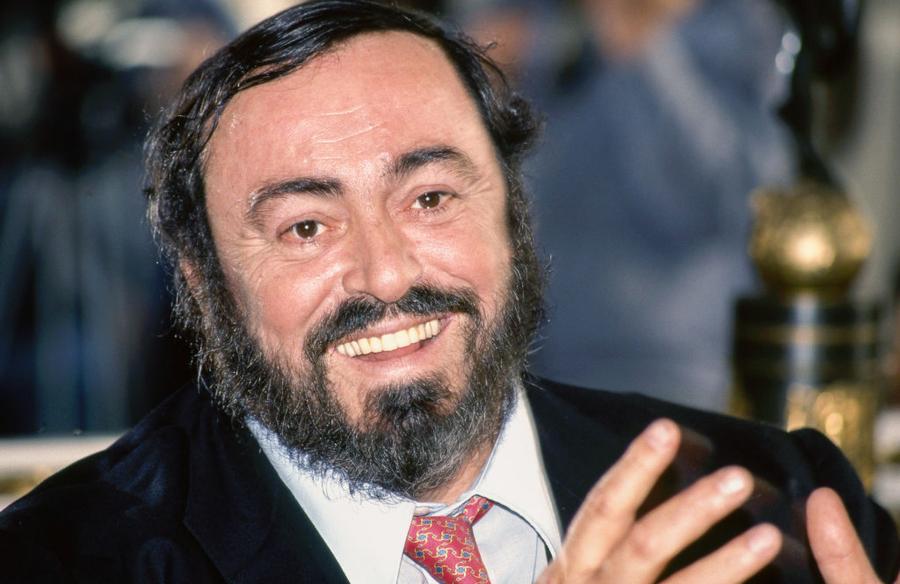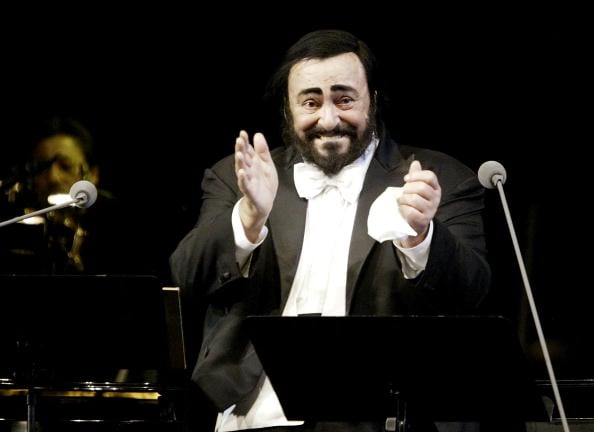What was Luciano Pavarotti's Net Worth?
Luciano Pavarotti was an Italian opera and popular music singer with a net worth of $275 million at the time of his death in 2007. Luciano Pavarotti managed to cross over into popular music, making him one of the most critically claimed and publicly loved singers of all time.
He was well known for his work with the Three Tenors, which included the Spanish singers Placido Domingo and Jose Carreras. Luciano became globally famous thanks to televised concerts that were watched by tens of millions around the world. Some notable public performances include the 1990 FIFA World Cup and the 2006 Winter Olympics, which ended up being his final performance.
Estate And Legal Battles
Despite being Italian-born, Luciano long claimed tax haven Monte Carlo as his primary residence. In 1999, the Italian government sued Pavarotti and eventually won $7.6 million in back taxes and penalties. At the time of his death, Luciano's estate was valued at $250 – $300 million. Pavarotti had already given his first wife a generous settlement during their 1996 divorce. By 2007, his estate included a large property in Modena, Italy, a villa in Pesaro, Italy, a Monte Carlo flat, and three New York City flats.
His first three daughters fought bitterly with his second wife over the estate. A will that Pavarotti signed late in life, potentially with not a sound mind, left 50% of his estate to his second wife and divided the remainder among his four children. And a second will leave 100% of his American-based assets exclusively to the second wife. The battle was ultimately resolved with the first three daughters being given a share of the American assets and his villa in Pesaro.

Portrait of Italian tenor Luciano Pavarotti (1935 – 2007), Madrid, Spain, 1993. (Photo by Gianni Ferrari/Cover/Getty Images)
Early Life
Luciano Pavarotti was born in Modena, Italy, on October 12, 1935. His father, Fernando, was a baker, and his mother, Adele Venturi, was a worker in a cigar factory. The family had little money, which World War II further exacerbated. As a young boy, Pavarotti initially wanted to be a soccer goalkeeper but then decided to become a singer. He had been exposed to music from a young age as his father was an amateur tenor, often playing records of the famous tenors of the day in the family's home. After finishing high school, he briefly worked as an elementary school teacher but then began to seriously student music in 1954 with Arrigo Palo. Pavarotti was 19 at the time.
His first success as a singer came when he joined Corale Rossini, a male vocal choir. The group won first place at the International Eisteddfod in Llangollen, Wales. He then began studying with Ettore Campogalliani for the next few years. While studying music, Pavarotti worked several part-time jobs to make money, including as an insurance salesman and teacher.
Career
After seven years of training, Pavarotti made his debut as a tenor in "La Bohème" in April of 1961. His first national appearance came the following year in the opera "La Traviata," performed in Belgrade, Yugoslavia. In 1963, he made his debut at the Vienna State Opera and then performed in Dundalk, Ireland. While these roles were successful, Pavarotti did not achieve widescale success in his early career.
However, he continued expanding his career worldwide, touring Australia in the summer of 1965 and making his American debut the same year when he sang with Joan Sutherland at the Greater Miami Opera. He also continued getting more and more prominent and prestigious parts in European productions throughout the end of the 1960s.
His breakthrough in the United States occurred in 1972 when he drove the New York Metropolitan Opera crowd into a frenzy after performing nine high C notes in "La fille du régiment." He received a record-breaking seventeen curtain calls following his performance.

Oleg Nikishin / Getty Images
From that performance onward, Pavarotti's stardom skyrocketed. He started giving frequent television performances, including "Live from the Met," first broadcast in 1977. He won many Grammy awards for his recorded performances and continued giving critically acclaimed performances around the world. He was profiled on the cover of "Time" magazine in 1979, the same year he returned to the Vienna State Opera after an absence of fourteen years.
In the 1980s, he continued to experience breakthroughs and was able to book larger and larger venues. In 1990, his rendition of "Nessun Dorma" from "Turandot" was used as the theme for the BBC's coverage of the 1990 FIFA World Cup in Italy. The record achieved pop status, helping Pavarotti begin his crossover into the world of more popular music. He started singing to massive crowds in major cities worldwide, like concerts in London's Hyde Park and New York's Central Park, sometimes attracting 500,000 listeners. He became the first and only opera singer to perform on "Saturday Night Live," and he was presented the Grammy Legend Award in 1998.
The early 2000s remained busy and successful for Pavarotti, though health issues forced him to slow down. He embarked on his farewell tour in 2004 at the age of 69.
Personal Life
Pavarotti was married twice in his life. He married his first wife, Adua Veroni, in 1961. They had three daughters together before divorcing after almost forty years of marriage in 2000. In December 2003, he then married his former personal assistant, Nicoletta Mantovani, who was nearly 35 years younger than him. The two had already had a daughter together earlier that year.
Pavarotti was involved in a number of charity and humanitarian causes. He hosted the Pavarotti and Friends charity concerts in his hometown of Modena, Italy. He was joined there by various world-famous singers, including Elton John, Queen, Andrea Bocelli, and B.B. King, among many others. The concerts raised money for a variety of UN causes. He also worked closely with Princess Diana of Wales to raise money to eliminate land mines worldwide. He was appointed the United Nations Messenger of Peace in 1998 and received the Nansen Medal from the UN High Commission for Refugees in 2001 for his efforts to raise money for refugees around the world. He has also received the Kennedy Center Honors, the Red Cross's Award for Services to Humanity, and the Freedom of London Award.
Pavarotti was involved in a tax evasion scandal after long claiming Monte Carlo as his official residence to benefit from the tax haven of Monaco. However, an Italian court later ruled that his residence in Monaco could not accommodate his entire family. He was thus ordered to pay over $7 million in back taxes and penalties.
Death
While on his international farewell tour, Pavarotti was diagnosed with pancreatic cancer in July of 2006. He underwent surgeries in an attempt to fight the disease but was ultimately taken by the cancer and died at his home in Modena on September 6, 2007. His funeral was held at Modena Cathedral and attended by the Italian Prime Minister at the time, Romano Prodi, and Nobel Peace Prize recipient, Kofi Annan. The funeral was broadcast around the world, and many opera houses have published tributes to Pavarotti.
/2021/11/luciano.jpg)
/2010/03/Andrea-Bocelli-1.jpg)
/2019/01/Jose-Carreras.jpg)
/2016/02/GettyImages-108845446.jpg)
/2016/07/Zucchero.jpg)
/2014/08/Plácido-Domingo-1.jpg)
/2023/10/elaine-wynn.jpg)
/2013/06/Wink-Martindale-1.jpg)
/2020/10/cate.jpg)
/2021/04/William-Levy-1.jpg)
/2021/12/peter.jpg)
/2010/03/nc.jpg)
/2020/03/steve-wynn.jpg)
/2010/11/Sara-Bareilles.jpg)
/2019/02/jalex.jpg)
/2013/01/Al-Jarreau.jpg)
/2014/06/oscar.jpg)
/2021/11/luciano.jpg)
/2014/08/Plácido-Domingo-1.jpg)
/2010/03/Andrea-Bocelli-1.jpg)
/2019/01/Jose-Carreras.jpg)
/2021/05/bb.jpg)
/2010/02/Tony-Bennett.jpg)
/2016/04/gregory-peck.jpg)